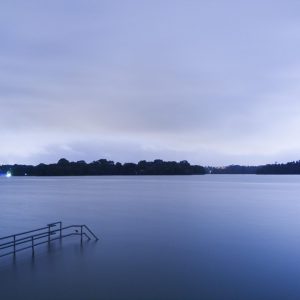Desecuritisation and after Desecuritisation: The Water Issue in Singapore–Malaysia Relations
April 6, 2020

World Water Day is observed annually on March 22 to celebrate the importance of water. More importantly, it serves as a day to raise awareness on water issues, advocate for sustainable water use and distribution, and inspire people to make better use of water. These objectives are targeted through initiatives such as advertising, discussions, and seminars.
As a small country with limited natural resources, Singapore has had to rely on imported water from Malaysia to supplement its water needs. This has seen the signing of the 1962 Johor River Water Agreement, which allows Singapore to extract up to 250 million gallons of water per day from the Johor River. The Singapore government has not renewed the agreement, which expires in 2061, as it is optimistic that by then Singapore will be self-sufficient in its water resources.
This optimism was not always existent. In April 1968, Singapore had to seek Asian Development Bank (ADB) support for a loan to develop a reservoir in Kranji and to expand the water works in Johor to increase the supply of water. Singapore was later unhappy that the ADB did not release the funds as Malaysia had seemed reluctant, and did not endorse the proposal. This deteriorated ties between the two countries.
In the chapter ‘Desecuritisation and after Desecuritisation: The Water Issue in Singapore–Malaysia Relations’, published in Perspectives on the Security of Singapore (World Scientific, 2015), Associate Professor S.R. Joey Long (NUS History) examines the history of water related issues in Singapore and how they have affected its relationship with Malaysia. Where in the past the threat of the water supply being cut from Singapore was seen as a threat to its sovereignty that could potentially cause an armed conflict between the two nations, the desecuritization of the water issue had prompted Singapore to be more self-reliant. Currently, apart from importing water from Malaysia, Singapore obtains water from its local catchments, reclaims water by purifying used water and sewage at the NEWater factories, and desalinates water. Together, these water sources form the ‘four national taps’ which diversify Singapore’s water supply and reduce an overreliance on Malaysia for this crucial resource.
Read the article here: https://www-worldscientific-com.libproxy1.nus.edu.sg/doi/pdf/10.1142/9789814689342_0007
